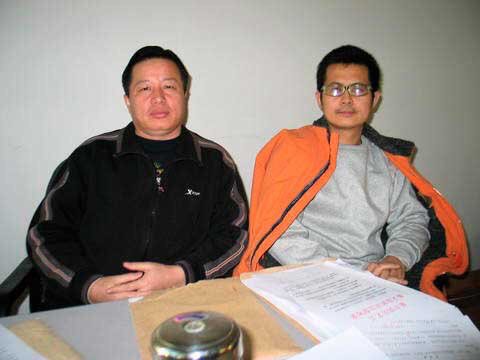China should halt the force-feeding of Yang Maodong, a rights activist imprisoned in China, Human Rights Watch said on Sunday.
Yang, also known by his pen name Guo Feixiong, has been on a hunger strike since May 9 to protest his mistreatment at a Guangdong prison.
The NGO learned from Yang’s family members that prison authorities had started force-feeding him on a daily basis since mid-May, and increased the frequency in mid-June to twice a day. They feed him with a liquid nutritional supplement by forcing a feeding tube into his nostrils, down his throat and into his stomach, Yang’s family said.

“Force feeding prisoners who are on a voluntary and informed hunger strike – a form of peaceful expression – is contrary to international standards,” Human Rights Watch said in a statement. It also called for adequate medical care for Yang.
Force-feeding and denying prisoners adequate medical care amount to cruel and inhuman treatment according to the UN Convention Against Torture, which China has ratified, the NGO said. The procedure is invasive and risks damaging surrounding tissues, according to Israeli NGO Physicians for Human Rights. Tissue damage can then lead to infection and further medical complications.
Yang’s sister Yang Maoping received permission to visit him on Friday and plans to see him again this week, she told US-backed Radio Free Asia. Yang Maodong looked very weak when his lawyer Zhang Lei saw him on June 20, Zhang told RFA.

Yang has been in detention since Aug. 8, 2013. He started the hunger strike after being subjected to a humiliating colonoscopy against his will, in addition to verbal insults and other forms of maltreatment from prison guards.
See also: Wife of imprisoned Chinese rights activist Guo Feixiong stages hunger strike outside UN HQ
According to Human Rights Watch, Guo made four demands during his hunger strike: that President Xi Jinping should undertake political reforms; the use of electric shock should be abolished in all prisons; the treatment of political prisoners should be improved; and China should ratify the International Covenant on Civil and Political Rights, which it signed in 1988.
“Guo should never have been imprisoned in the first place, and his cruel treatment since sends a chilling message about human rights in China today,” Sophie Richardson, Human Rights Watch’s director, said. “Respecting Guo’s rights could help begin to repair the damage done.”
